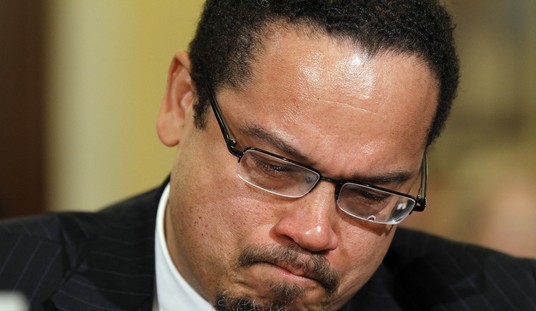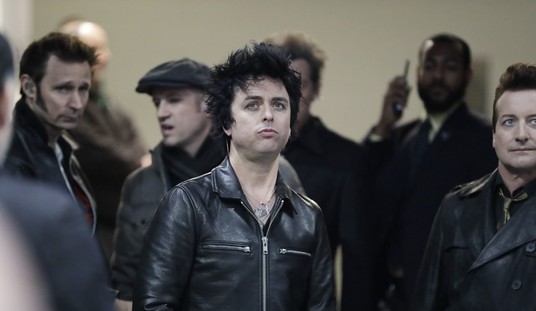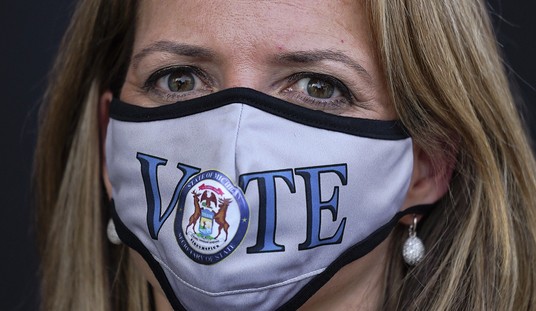
We first encountered Hillary Clinton groupie and alleged IT tech wizard, Brian Pagliano, back in September when he took the Fifth rather than appear before Trey Gowdy’s committee. Taking the Fifth doesn’t mean that Pagliano is a criminal, per se, it just means that if he testifies truthfully he knows he will become a criminal.
Since that time Pagliano has negotiated an immunity agreement with Department of Justice and has, more likely than not, been talking to FBI agents.
The criminal case is only one part of the Clinton email melodrama. The other part is a civil suit brought by Judicial Watch over Hillary Clinton’s State Department deliberately hiding responsive materials from Judicial Watch. Young Mister Pagliano was at ground zero of that effort as he managed Hillary Clinton’s unsecure, unencrypted, private email server. He was scheduled to give a deposition tomorrow but informed opposing counsel last week that he intended to take the Fifth, again, and asked the federal judge overseeing the case to prevent Judicial Watch from videotaping the deposition. This latter request is extraordinary as Cheryl Mills was videotaped during her deposition but Judicial Watch was barred from releasing it.
The judge has demanded to see the immunity agreement Pagliano has reached with Justice and will eventually make a ruling.
Even so, Pagliano taking the Fifth in a civil deposition may not help him or anyone else very much.
His decision increases the odds that Clinton herself will be forced to testify in the case.
And, because of quirks of the legal system, his decision to stay quiet could be seen as an implicit confirmation that he or the State Department had done something wrong.
Unlike in a criminal case, judges in civil cases such as Judicial Watch’s can draw inferences about someone’s guilt from a witness’s decision to plead their rights under the Fifth Amendment. For lawyers, there’s a reason to go through the motions and ask questions, even if the response is the same over and over again.
Staying silent “can be used against you,” said Peter Toren, a former federal prosecutor and partner at Weisbrod Matteis & Copley.
“It’s extremely tedious, but the fact that [a witness] took the Fifth is an inference that what I’m asking is true,” said Toren.
So even if Pagliano doesn’t say a word during the deposition, he will impact the case moving forward.
“His doing that in this context tells you something about the purpose of the system, potentially, and what was going on and whether it was a good faith issue — a matter of just folks making honest mistakes — or something more nefarious,” Tom Fitton, Judicial Watch’s head, told The Hill. “We do learn something from this, no matter what. It’s not a pro forma process. It’s not just an exercise in futility.”
The reason he may be taking the Fifth in the civil case probably lies in the reason he struck an immunity agreement to begin with:
The IT expert had previously asserted his Fifth Amendment rights before the House Select Committee on Benghazi and reportedly had been granted immunity as part of the FBI’s investigation of possible mishandling of classified information related to the server.
Having him speak could jeopardize that deal, expose him to new legal risk or damage his future employment prospects**, lawyers speculated.
“We don’t know what the scope of the immunity that Mr. Pagliano received was,” said Paul Charlton, a partner at Steptoe & Johnson and former U.S. attorney. “I suspect that whatever that immunity was — if he was in fact given immunity in the criminal investigation — may not exactly match the concerns that may come about in a FOIA civil lawsuit.”
…
In any case, he appears unlikely to change his tune.
“Your chief concerns as counsel is to make sure you do everything you can to protect your client where the stakes are highest,” added Henry Hockeimer, a former federal prosecutor now at Ballard Spahr.
“In this case, it’s the criminal investigation.”
It is pretty difficult to imagine that, at some point if not already, the FBI will not become interested in what Judicial Watch has discovered. And it is easy to see where the answers Pagliano gives Judicial Watch might not be completely in sync with what he has told the FBI and that would mean a lot of trouble for him. By remaining silent, Pagliano paints every decision made with regards to her private hillbilly-esque email system with the inference that there was intentional misconduct underway.
**In case you are wondering where Pagliano is employed, he is working for a federal contractor that supports the State Department’s IT efforts.














Join the conversation as a VIP Member